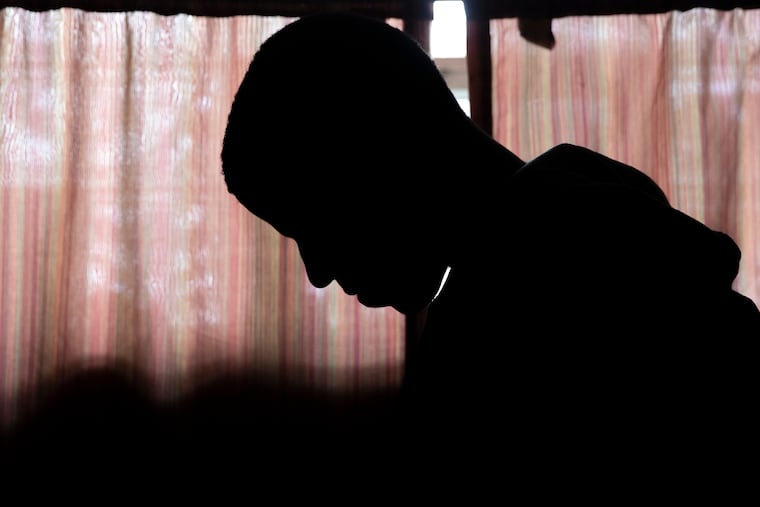Philadelphia to pull boys out of Glen Mills Schools, citing Inquirer report
City officials are calling for an investigation into widespread abuse and coverup attempts at the oldest existing U.S. reform school.

The oldest existing U.S. reform school, the Glen Mills Schools, was founded 193 years ago as the Philadelphia House of Refuge.
But for perhaps the first time in its storied history, Glen Mills won’t enroll students from Philadelphia. The city is pulling its boys after an Inquirer investigation revealed widespread abuse and attempts to cover it up, Human Services Commissioner Cynthia Figueroa told the newspaper.
Figueroa is also joining Philadelphia City Council members and state lawmakers in calling for an immediate independent investigation of the school. Officials said the Delaware County school for juvenile delinquent boys would need a change in leadership and culture before the city would contemplate resuming a relationship with it.
“Any place that abuses children should be shut down, and Glen Mills does not deserve a contract with the city,” said Councilwoman Helen Gym. “I want the boys, their family members, and anyone else who spoke out to know that this city believes them."
Without pointing to any specific part of the Inquirer investigation, Glen Mills leadership said in a statement Friday evening that it “disputes virtually all the allegations and conclusions."
Last summer, the Inquirer reported that Philadelphia had temporarily stopped sending boys to Glen Mills after counselors beat and choked a local teenager. As of August, 143 Philadelphia boys were enrolled at Glen Mills, about 40 percent of the student body.
At the time, Glen Mills executive director Randy Ireson claimed the attack was “an isolated incident” that his staff “immediately self-reported" to the state Department of Human Services.
But in reviewing documents and interviewing former students and staff, the newspaper found that violence was common at Glen Mills and that counselors routinely threatened boys to keep them quiet. The school’s leaders insulated themselves from reports while failing to properly train or vet many of its counselors.
“It’s heartbreaking. It was a very hard read,” Figueroa said. She had recently received promises of change from Glen Mills, and expected to resume sending boys there as of two weeks ago.
Instead, the 51 Philadelphia boys remaining at the school will go back before a judge to be placed elsewhere. Some will go to other schools for court-ordered boys, while others will be enrolled in alternative programs that allow them to stay in the community.
In the meantime, Figueroa, Gym, and Councilman Kenyatta Johnson are calling for an outside investigation into the Glen Mills Schools. And they’re far from alone.
State Reps. Malcolm Kenyatta and Danilo Burgos, both from Philadelphia, sent a letter to the state attorney general, the auditor general, and the regional director for the U.S. Department of Justice, requesting an immediate probe into abuse at Glen Mills, including whether the school has broken state or federal laws.
The newspaper previously reported that the U.S. Department of Justice had “an ongoing law enforcement proceeding” at Glen Mills Schools, according to an October letter from the department’s Civil Rights Division.
After Glen Mills reviewed the findings of the Inquirer’s investigation, the school said it would form a panel including child protection experts to examine allegations of misconduct. The state lawmakers rejected this as a solution.
“The parents and taxpayers deserve a thorough, unbiased accounting of the history of conduct at Glen Mills," the lawmakers wrote.
Local and national organizations that advocate for children also expressed outrage after reading the newspaper’s investigation, which covered three decades and showed the school’s top leaders turning a blind eye to abuse.
“The intimidation of youth, parents, staff and family members who try to report abuse is especially damning,” said Sue Mangold, chief executive of the Philadelphia-based Juvenile Law Center.
Maura McInerney, legal director at the Education Law Center, said, “These heart-wrenching and harrowing stories expose the reality of relentless physical and emotional abuse, terror, and trauma."
“Glen Mills reads like a house of horrors for young boys,” said Nancy Nguyen, executive director of VietLead, which runs an after-school program for low-income students in Philadelphia and South Jersey. “The leadership should all be fired, and the campus should be shut down.”
At its height, Glen Mills housed more than 1,000 boys from all over the country, and even some from Europe. But enrollment has dwindled, both due to allegations of abuse and because of a nationwide move away from institutionalizing youth.
Since 2015, there has been a 47 percent percent reduction in the use of delinquent placements such as Glen Mills for Philadelphia youth. Figueroa has asked the state for an additional $3 million to build special centers and buy GPS monitors to keep children out of residential programs.
Glen Mills is the fourth facility Figueroa has had to stop sending boys to since she became commissioner in 2016. The Wordsworth Academy in Philadelphia closed after counselors attacked and killed a teenager over a stolen cell phone in 2016. The state took action against its license, and Wordsworth declared bankruptcy.
Philadelphia has historically been Glen Mills’ biggest client. It would take a lot, Figueroa said, for her department to consider sending boys to Glen Mills again. She has been “crystal clear” that the school’s leadership team needs to go, she said, and even then she would have to see a “significant shift in culture.”
Gym said she plans to hold hearings on what happened at Glen Mills and how to keep children safe at other programs like it.
“I never want to see this again,” she said. “I don’t want to see another Wordsworth. I don’t want to see another Glen Mills.”